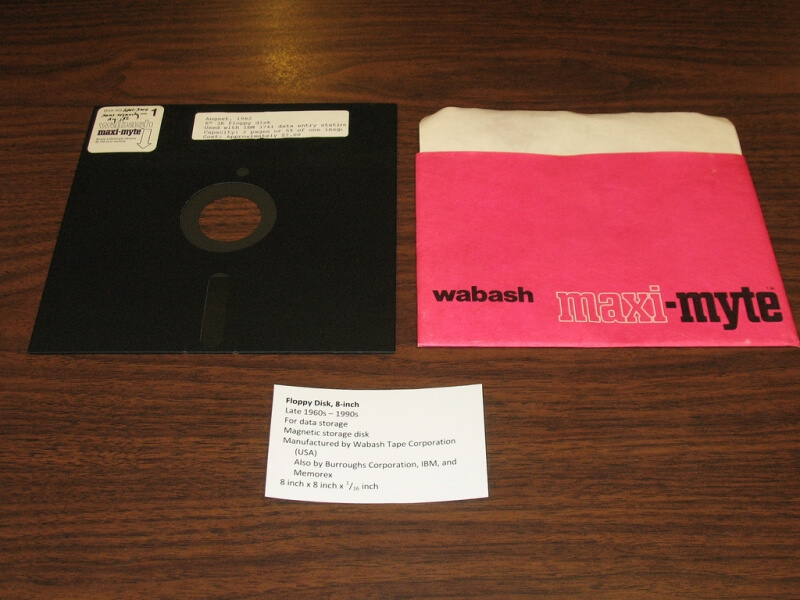Despite cutbacks and conflicts that have stretched resources, the US is still ranked as the undisputed world leader when it comes to military strength and technology. So it comes as quite a surprise to learn that the Pentagon still uses 1970's IBM Series-1 computers - complete with eight-inch floppy disks - as part of the nation's nuclear weapons systems.
A recent report from the Government Accountability Office revealed that the Pentagon was one of several government agencies still using ancient "legacy systems," which include Windows 3.1., COBOL and Fortran programming languages, and 40-year-old computers.
"Legacy IT investments across the federal government are becoming increasingly obsolete," stated the report. "For instance, [the Department of] Defense is still using 8-inch floppy disks in a legacy system that coordinates the operational functions of the United States' nuclear forces."
Taxpayers are paying $61 billion a year to maintain these old systems, about three-fourths of the government's technology budget.
The DoD's Strategic Automated Command and Control System for nuclear forces, which uses the IBM series 1s, is due to be upgraded. "This system remains in use because, in short, it still works," Pentagon spokeswoman Lt Col Valerie Henderson told the AFP news agency.
"However, to address obsolescence concerns, the floppy drives are scheduled to be replaced with secure digital devices by the end of 2017," Henderson added. The Pentagon is planning to completely replace the system by the end of 2020.
The US Treasury is another department still using technology from the mid to late twentieth century. The report said the Internal Revenue Service's master file of taxpayer data is written in assembly language code initially used in the 1950s.
Aging systems are also found in the departments of Agriculture, Commerce, Energy, Homeland Security, Justice, State, and Veterans Affairs. Not all the technology was as ancient as eight-inch floppy disks, though; some of the agencies were found to be running the comparatively cutting-edge Windows XP.
"The federal government is years and in some cases decades behind the private sector," said Utah Republican Jason Chaffetz, chairman of the House Oversight and Government Reform Committee. "Taxpayers deserve a government that leverages technology to serve them, rather than one that deploys insecure, decades-old technology that places their sensitive and personal information at risk."
